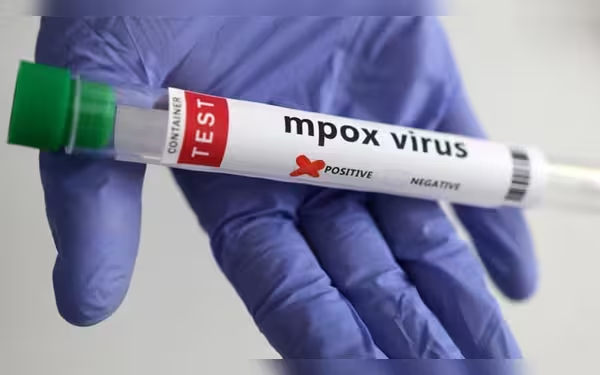Saturday, November 16, 2024 05:51 PM
WHO Evaluates Mpox Status as Global Health Crisis
- WHO to assess mpox as global health emergency.
- Mpox cases in Africa exceed 46,000 this year.
- Vaccination efforts underway in nine affected African countries.
 Image Credits: thenews
Image Credits: thenewsWHO to determine if mpox remains a global health crisis amid rising cases in Africa.
The World Health Organization (WHO) is once again in the spotlight as it prepares to hold an Emergency Committee meeting on November 22. The main agenda? To determine if mpox, a disease that has raised alarms globally, still qualifies as a global health crisis. This comes after the WHO classified mpox as a public health emergency of international concern back in August, following the discovery of a new viral variant known as clade Ib in several regions of Africa.
As of November 3, the WHO reported a staggering 46,794 confirmed and suspected cases of mpox in Africa this year, with 1,081 fatalities. The Democratic Republic of Congo has been the hardest hit, followed closely by Burundi and Uganda. While the disease continues to spread across the continent, there are signs of hope. Reports indicate that cases in Congo, where the more infectious variant was first identified, seem to be "plateauing." This suggests that the rate of new infections may be stabilizing.
Interestingly, the situation in South Kivu, a region known for its high rates of infection among sex workers and miners in the gold mining town of Kamituga, appears to have stabilized as well. However, the surrounding areas, along with Burundi and Uganda, are still witnessing an increase in cases. The WHO has pointed out that limited testing is a significant barrier to fully understanding how the virus spreads, making it challenging for health authorities to respond effectively.
Recent data from Congo shows a decline in laboratory-confirmed mpox cases, dropping to fewer than 100 from nearly 400 in July. Experts believe that this stabilization in infections presents a crucial opportunity for health authorities to take decisive action against the outbreak. Mpox, which can spread through close contact, typically causes mild symptoms but can be fatal in rare instances. Symptoms include flu-like signs and pus-filled lesions on the body.
In a proactive move, initial vaccine doses have been allocated this month for the nine African countries most affected by the outbreak. This step is vital in the fight against mpox, as vaccination can help curb the spread of the disease and protect vulnerable populations.
As the WHO prepares for its upcoming meeting, the world watches closely. The outcome could shape the future of public health responses not only in Africa but globally. It is essential for everyone to stay informed about mpox and its implications, as understanding the disease is the first step toward prevention and control. The situation remains fluid, and continued vigilance is necessary to ensure that we do not face a larger health crisis in the future.













